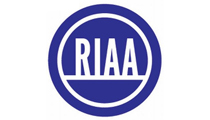This website uses cookies so that we can provide you with the best user experience possible. Cookie information is stored in your browser and performs functions such as recognising you when you return to our website and helping our team to understand which sections of the website you find most interesting and useful.
Business News Labels & Publishers Legal
RIAA sue-the-fans lawsuit could be heading to Supreme Court
By CMU Editorial | Published on Wednesday 22 September 2010

Staying in US, and news that one of the Recording Industry Association Of America’s lesser known sue-the-fans lawsuits might be set to be the first to go before the Supreme Court. The country’s highest court has been asked to consider whether the concept of “innocent infringer” can be applied to file-sharers who do not really understand the legal implications of what they are doing.
As previously reported, although the RIAA has now abandoned its self-harming sue-the-fans strategy for combating file-sharing – so that no new lawsuits will be filed against individual file-sharers – a number of cases are still working their way through the system. These are the cases where the targeted fan chose not to settle out of court; the most famous ones, of course, involve Jammie Thomas and Joel Tennenbaum.
But the case that could reach the Supreme Court is that of Whitney Harper. Although she ultimately admitted to illegally accessing music via P2P networks, she pleaded the “innocent infringer” defence. She argued that at that time when she was file-sharing she did not know doing so infringed copyright, equating P2P file-sharing networks with online radio services.
Although the “innocent infringer” claim is not a complete defence in US copyright law, it does mean a court can ignore the minimum damages set out in statute, which insist a defendant pay at least $750 for every copyright they infringe. Given Harper is accused of file-sharing 37 tracks, if you applied the statutory minimum she’d face damages of $27,750.
The Texas judge who first heard Harper’s case decided she should be considered an “innocent infringer” and ruled she should pay just $200 per copyright violation, so $7400. But when the RIAA appealed, a higher court said Harper’s chosen defence did not apply in file-sharing cases, and upped the damages to the statutory minimum.
Harper’s people are now appealing to the Supreme Court, which has asked the RIAA to respond to the file-sharer’s legal petition before they decide to consider the appeal. Although the request for a response does not mean the ultimate US court has agreed to hear this case, commentators familiar with the Supreme Court’s processes think it’s a definite sign it is seriously considering it.
If it was to get a second appeal hearing, it’s expected Harper’s case would go before the Supreme Court this autumn.





